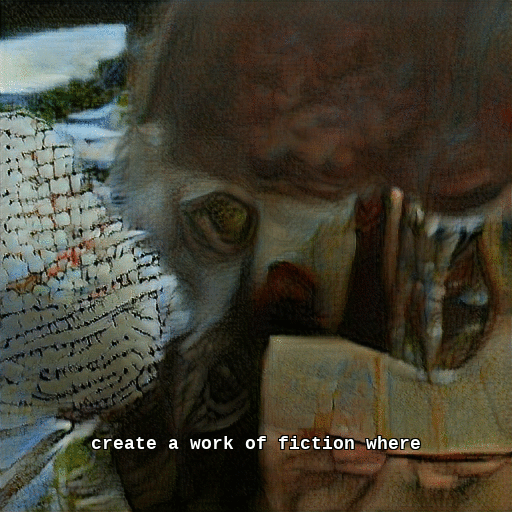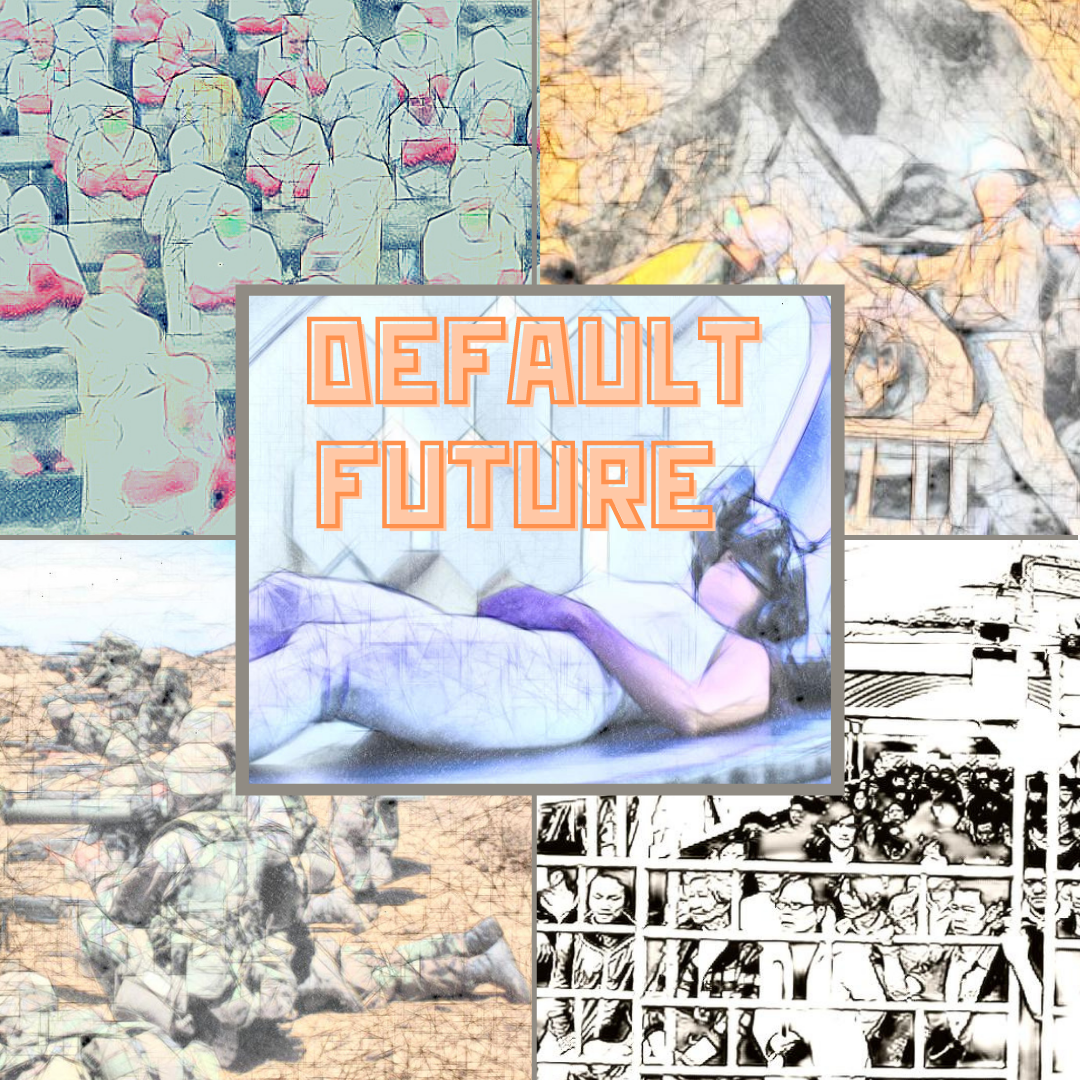On the emergence of post-speculative fiction
I just ran a work of speculative fiction through a piece of artificial intelligence software that once would have been called speculative. I'm realizing that we very well might be reaching a new era of science fiction and art.
I'm wondering if we should call this era post-speculative.
To Be Post-speculative
Speculative fiction generally works within a world where some things (eg technologies, magic, historical governments) can work in ways where the reader has no way of foreseeing the ultimate impact of these things. This is in contrast to forms of fiction that are strictly reality-based, meaning characters make choices inside the world where all the rules are already completely familiar to the reader.
For a work to become post-speculative the world in the story would need to be approximately as unpredictable or speculative as the tools used to create it.

I think that this genre would be characterized by three things that we see coming together now.
- the narrative takes seriously the implications for humanity
- the medium involves significant interaction with technology that itself would fit into a speculative world
- the theme of the story rejects a default optimististic view of the future
In the next sections, I'll explain where these features fit in.
Explanation by example
>To compare and contrast what would or wouldn't be post-speculative, we might analyze Black Mirror episode Bandersnatch. I think that Bandersnatch was a really entertaining piece of speculative fiction, and I definitely rewatched many times to follow all the paths. And part of the reason that I rewatched was because I was hoping for something that (although I hadn't named it at the time) would have been post-speculative.
I had really wanted Bandersnatch to reach a point in the loop where it starts to blur the lines between the choose-your-own-adventureness and the free will of the audience member. To reach the level of post-speculativeness, the movie would have needed to utilize some technology that made the viewer question whether what they were saying was really taking place in a different world from their own.
For example, if Netflix offered the option to play with the viewer's own image integrated into Bandersnatch to personalize it, and in the story, the game designer would have passed that image down into his game with the purpose of tracking and storing more data about the user, we would have crossed into the post-speculative realm. Such a plot device would place the audience directly into the position of honestly considering themselves just the characters in a story for an audience in a world external to their own. Although the narrative suggests something like this (while also suggesting it is madness to consider it), nothing about the medium itself conveyed that.
Another way to make it post-speculative, would have been to ackowledge that the viewer is in another kind of game. In this case, the game would be Netflix using the choices that you made in Bandersnatch to figure out what you the user would choose next. Again, the technology that we are building will be used for this kind of prediction in the near future. Post-speculative is when we acknowledge that it is happening, and construct the medium to emphasize that it's happening even though we don't really understand how it works yet.
Deconstructing speculation
Another way to describe this, would be as deconstructing a culture of speculation using themes and technology that look speculative themselves. This is not unlike postmodernism, where the tools of a society built by modernist thought were re-reflected back onto that world to critique it. This led to skepticism with the assumptions of everything that modernism felt so vindicated in creating. There are more parallels with between scpeculative fiction and modernism too. I particularly like this passage I copy-pasted from wikipedia.
[Postmodernism was] a rejection of the modernist "Utopian gesture" of the transformation through art of misery into beauty whereas in the postmodernism movement the object world has ... "now become a set of texts or simulacra". Whereas modernist art sought to redeem and sacralize the world, to give life to world, postmodernist art bestows upon the world a "deathly quality… whose glacéd X-ray elegance mortifies the reified eye of the viewer"
I think the urge to create speculative fiction, particularly during and after the "Golden Age" of scifi, was a very utopian vision, similar to the grand ideals of modernism. The speculative writer aimed to point our minds at a distant horizon, and help us to tease apart just what we want our future world to look like. I even might think that the fundamental morality of scifi and fantasy was an organic counterinsurgency against the cynical navel gazing of postmodern entertainment. Even in the later cyberpunk/post-apocalypse/"they're all Cylons" era, the narratives still normally had a fairly idealistic moral core. The evil tech conglomerate and/or the zombies were bad, and the people using super badass technology to win were good. The modernist glorified the rise of industrial technology powered by modernizing, we glorified the rise of information technology powered by speculation.
Similar to the postmodernist rebuttal of modernism, the post-speculativist accepts a narrower view of the speculative future: that someday when we live in an era with new technology, our condition will still be fundamentally the same.
But now, maybe the era of speculation is coming to a close, and just like the postmodernist, we're getting to the point where we have to fully acknowledge the aftermath of the idealism we neglected to inspect before we let it happen. And if we define a movement of deconstructing our fetishization of speculation, maybe we'll be able to dismantle it before it's too late.
Are you sure we should do that this way?
This does raise the question whether we need to make art that works like a proof of concept for the dystopian at all? It might be possible to critique without actually manifesting the art, but thus far, speculative fiction itself hasn't curbed our "progress" yet. Even the darkest of the speculative works still kept us thinking about those as issues to be dealt with by anti-heroes of the future. And based on my experience in this industry, I would say that if concerned people don't implement it out in the open, it'll just take a little more time before the opportunistic implement it behind-the-scenes.
That said, there may be a bigger problem, and one that may disqualify me from speaking on this matter. In a very real way, I'm one of many who are fully enthralled with speculative narratives of mind-machine interfaces, planet wide algorithms, and artificial metaconsciousnesses. Honestly, to see them come to life would be thrilling. Even if I expect the ending.
 will stedden
will stedden

